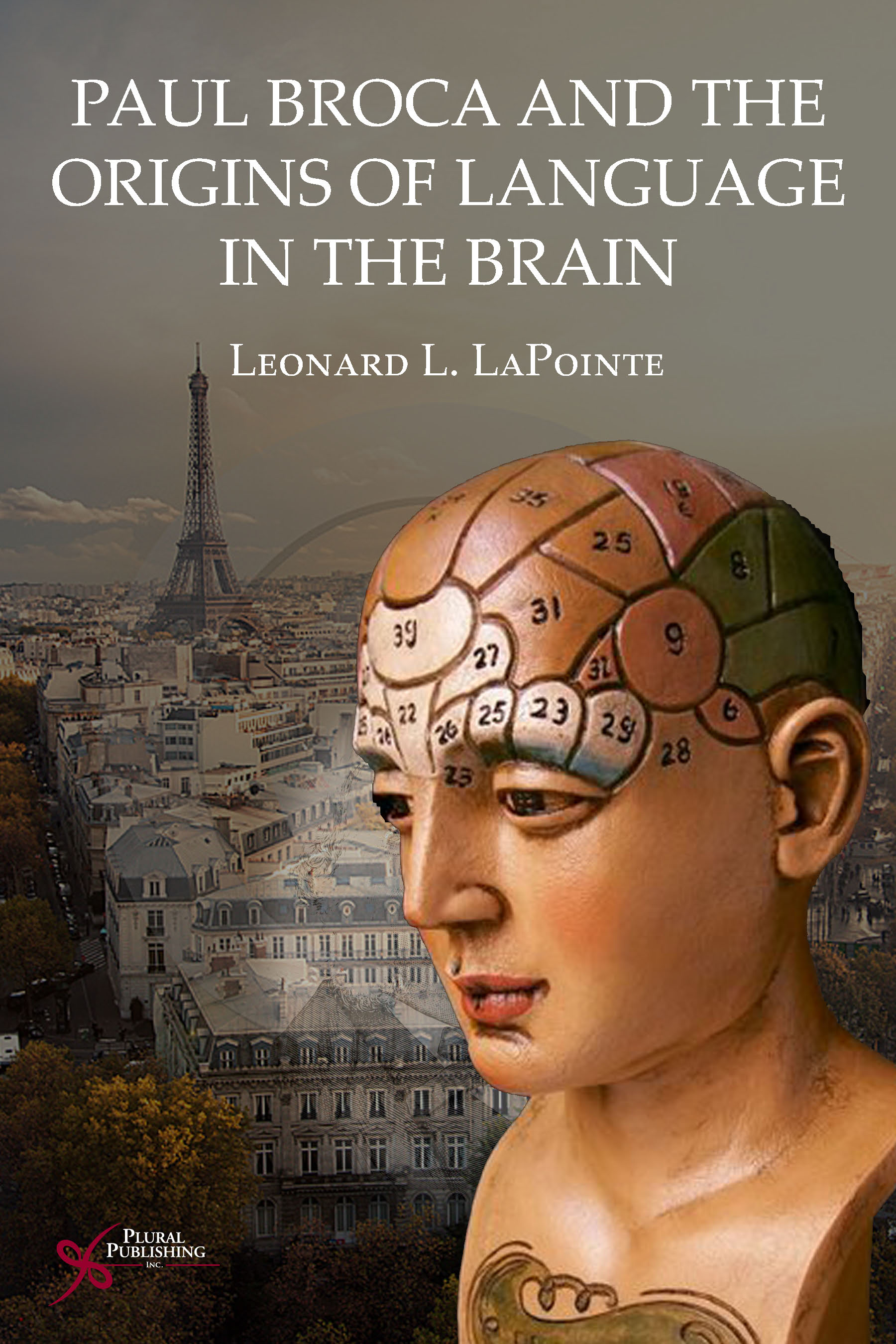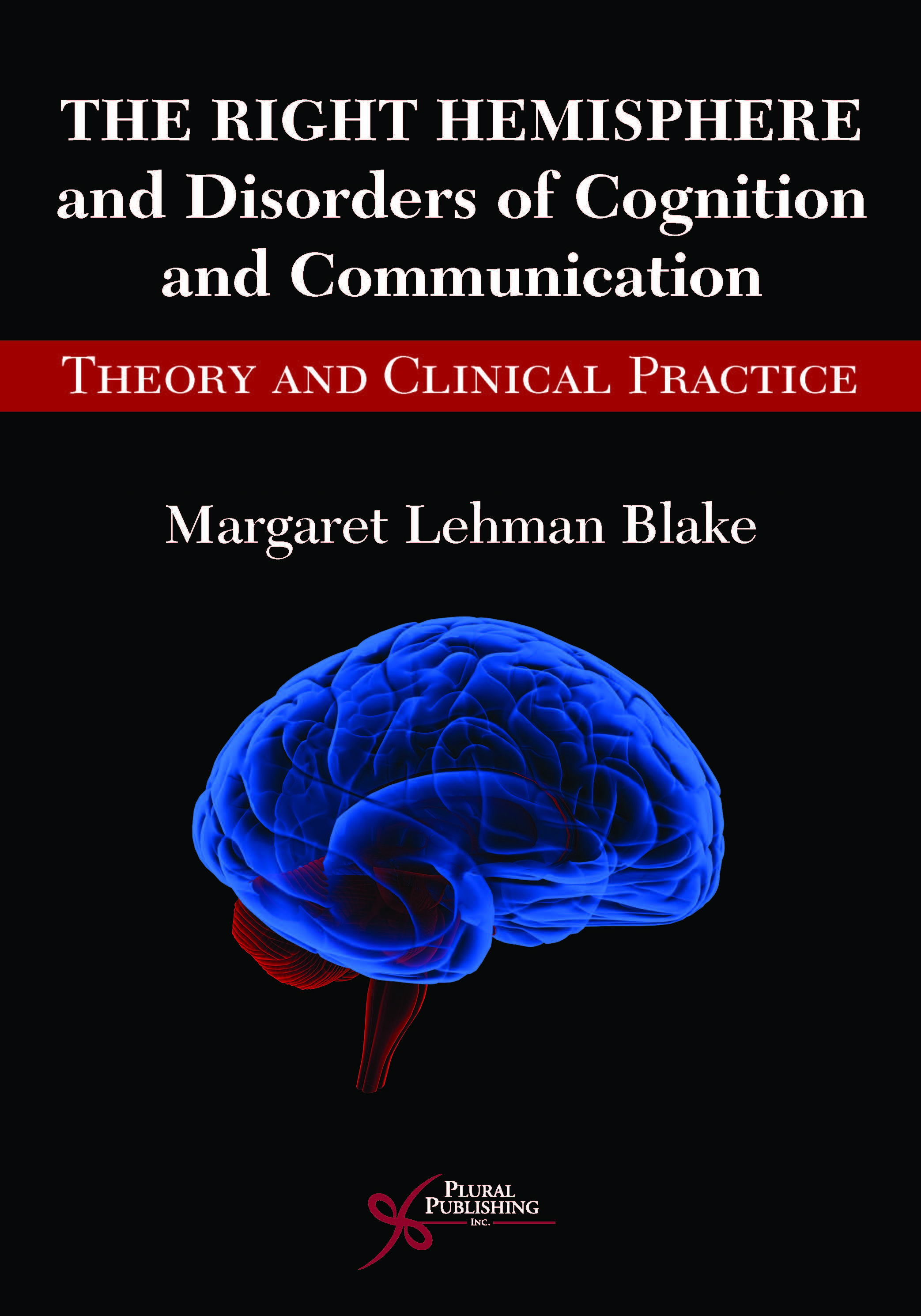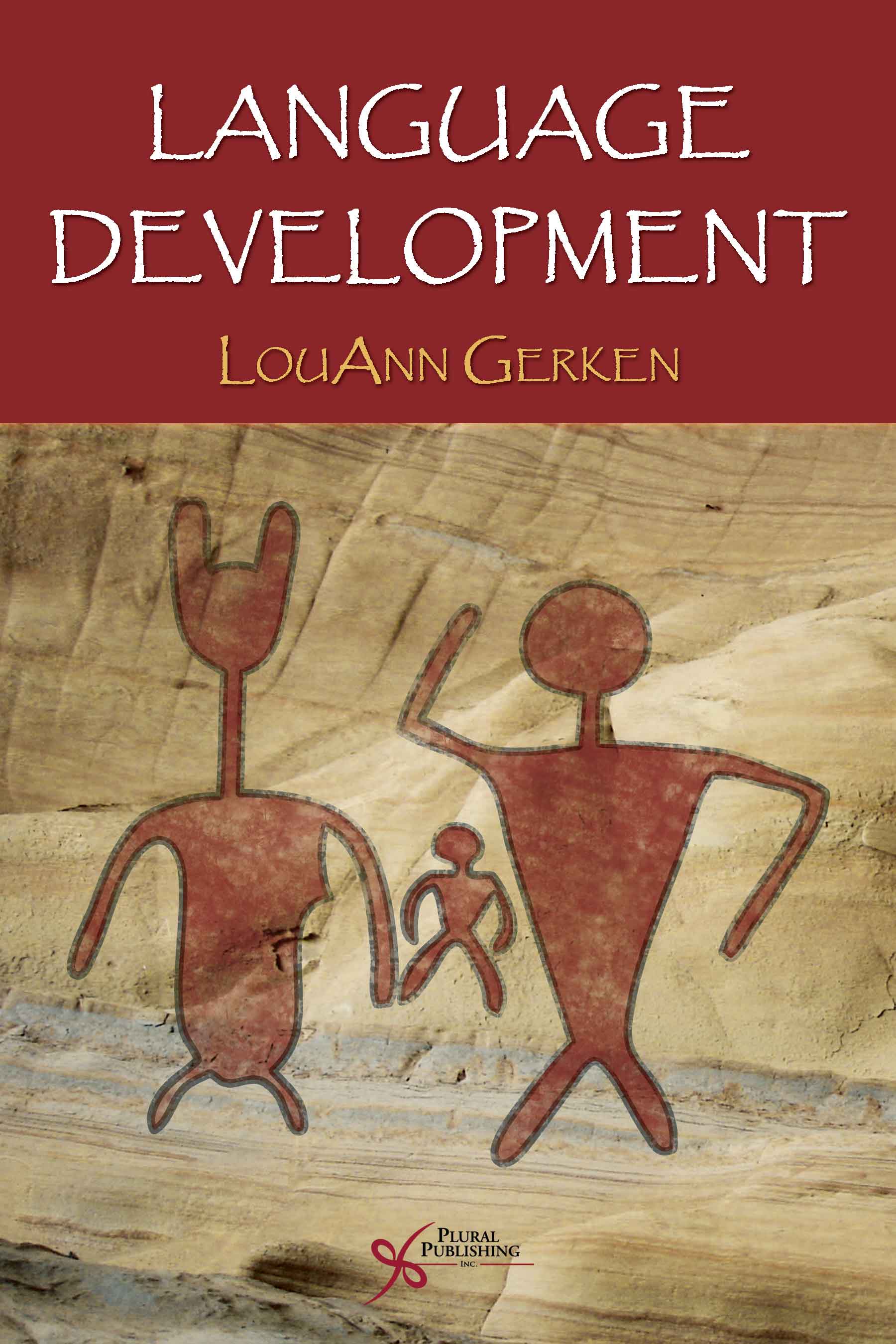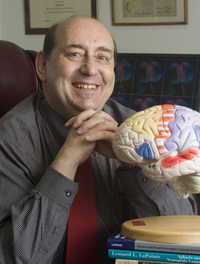
Paul Broca and the Origins of Language in the Brain
First Edition
Leonard L. LaPointe
Details: 390 pages, 2-Color, Softcover, 6" x 9"
ISBN13: 978-1-59756-478-6
© 2013 | Available
Purchase
Pierre Paul Broca was a child prodigy. He fulfilled his promise by becoming a brilliant neurologist, surgeon, and anthropologist. Perhaps his most lasting contribution to neuroscience was his proposal that the third frontal convolution of the left cerebral hemisphere of the brain is the seat of that most human attribute, the production of articulate speech and language. This notion was advanced by detailing the autopsy findings, with quite evident and circumscribed lesions, in the brains of his two now famous cases, Leborgne (known as "Tan", for that is all he could say) and Lelong. Brocas presentations were milestones in the history of the neuroscience of language and the brain, but they were only more defined echoes of ideas that had preceded him.
Undergraduate and graduate students as well as practicing professionals and clinicians in psychology, neurolinguistics, cognitive psychology, communication science and disorders, neurology, neurosurgery, neuropsychiatry, nursing and health-related professions, and philosophy of science will be interested in this book. It is different from others like it in that it presents aspects of the personal lives of these French brains who sparked the notion of a place in the brain for human language. It embraces a more empathic and humanistic approach to understanding people and their disorders as well as to what may drive the process of science and patients as "specimens."
Reviews
"In this book, Leonard L. LaPointe goes beyond the simple tribute to the career of a scientist. In a cohesive story full of unanticipated characters such as Marc Twain, Melville, Stendhal, Rodin and even Carl Sagan, the author integrates scientific findings and humanistic aspects with social and political historical facts and art. The delicate balance between pleasantness and informativeness is reached here through an unexpected, and at times almost literary, style supported by plenty of full-colour illustrations. In this book, all the ingredients (the context, the names and the dates) are present to create a very visual final product to honour the fecund life of Pierre-Paul Broca, and in doing so, also honouring the many French brains that paved the way for the development of the neurosciences."
—Dr. Silvia Martinez-Ferreiro, in Aphasiology, 2013
"Leonard L. LaPointe's wide-ranging essays have already delighted the speech-language pathology community of which he is a stellar member. But as an outsider whose life is devoted to trying to reveal the mysteries of the human condition through the creative use of language, I can tell you LaPointe is unquestionably a stellar member of my community as well. ''Paul Broca and the Origins of Language in the Brain'' is full of the joys of a brilliant literary style, the delights of a truly original and playful mind, and the rich revelations of insights into the human heart. This book deserves the widest possible audience."
—Robert Olen Butler, author of the Pulitzer Prize-winning ''A Good Scent from a Strange Mountain'' (2013)
"In the 1860’s, an age when the nearest the average physician came to diagnosing brian function was to ‘count the bumps’, Paul Broca was already publishing articles on autism, acquired brain injury, the neuro-pathological localization of speech and language, cephaolmetics, the pathology of cancer, treatment of aneurysms, infant mortality and the histology of cartilage and bone. LaPointe captures both the man and the spirit of the mid-nineteenth century Paris in his totally absorbing book. Against a backdrop of free-thinkers and impressionist painters, and not forgetting the giants of the past such as Hippocrates, Galen, Descartes and Pascal, LaPointe presents a dynamic physician, scientist and philosopher who dared champion the greatest of all human attributes, communication. His vivid, creative humourous style, replete with illustrations, makes his book on a ‘must read’ for the SLT and the layperson. Paul Broca is one of the few people to have an area of the brain names after him; LaPointe’s book is one of the few to be endorsed by no less an author than Pulitzer Prize winner, Robert Olen Butler."
—Catherine Foy, SLT, QEF Neuro Rehabilitation Services, in the Royal College of Speech and Language Therapists Bulletin (July 2013)
"...In 358 pages, LaPointe provides all things Broca: his times, his life, his contributions. Chapter 1 through 6 set the historical stage; Chapter 7-9 provide biography as Broca prepares; Chapter 10 is devoted to the landmark cases- M. LeBorgne and M. Lelong; Chapter 11 chronicles the breadth of Broca’s contributions; and Chapter 12 explores Broca’s legacy. Four Appendices [and a] 250 item-plus list of references completes the volume...At the end of Chapter 1, his Precis, LaPointe’s invitation is, "Return with us now to the thrilling days of yesteryear." What follows is a treck through early interest in the brain and the behavioral results of its damage...LaPointe helps us grow up by weaving Paul Broca, his contributors and his times, into our professional, ancestral history. We are reminded that history did not begin with us; that there is a pre-me. Philip Roth asks, "Who will speak for elsewhere?" LaPointe does exactly that very, very well indeed."
—Robert T. Wertz, PhD, Professor Emeritus, Vanderbilt University, in the ANCDS Newsletter (vol 11-1; pp. 15- 18) (Spring 2013)
"The book under review is the caring, wry, and bemused survey by a distinguished speech and hearing pathologist of all that concerns Pierre Paul Broca and his descriptions and theories of language and articulate speech, and particularly how these functions are localized, and therefore represented, in the human brain. Leonard L. "Chick" LaPointe has prepared a very good overview of the neuroscientific and sociopolitical settings of Broca’s contributions...LaPointe aims to give his imprimatur to this story and to offer it to historians of aphasia and of neuroscience in general.
...This reviewer was delighted by the skill with which LaPointe analyzed and drew together [the] studies of Broca’s brains, Broca’s area, of its confines, and of its connections. There is no doubt that LaPointe has written a different kind of ‘Broca book’ in comparison with previous volumes on the theme, and readers familiar with Schiller (1979), upon whom he draws heavily (as is appropriate), will note where the books overlap and where they do not. LaPointe is nevertheless deeply familiar with the Broca literature, the depth of which knowledge impressed this reviewer...In sum, LaPointe’s book is a pleasure to read. His writing style varies from the serious to the sublime. His proclivities for parody and irony often jolt the unsuspecting reader as they encounter the literary playfulness with which, for example, he joyfully exploits details of the sleeping habits of Descartes or those concerning leeches, trepanations, guillotines, and other bizarre but human moments in the history of medicine."
—Hugh Buckingham, Communication Sciences and Disorders, Louisiana State University, in the Journal of the History of the Neurosciences: Basic and Clinical Perspectives (10 Feb 2014)
Preface
Acknowledgments
Chapter 1. Précis
Chapter 2. Early Times: Deep Sulci of History
Descartes: Reason and the Scientific Method
Chapter 3. Phrenology and Serendipitous Bumps
Franz Joseph Gall
Time Line of Phrenology
Phrenology’s Principles
Faculties and Head Bumps
Terms Used to Differentiate the Sizes of Organs
According to George Combe (1853)
Spurzheim’s Tour
Flourens
Sex and Amativeness
The American Tour
The Combe Brothers
Chapter 4. Relics of Aphasia: The Artifacts of Lost Words
Liepmann and Apraxia
Time for Lichtheim
Strange Words Recalled in Literature
Larrey: An Unlikely Aphasiologist
Lordat: Alalia and Early Accounts of Aphasia
Bateman, Leeches, and Other Novel Descriptions of Aphasia
Chapter 5. Turmoil, Revolt, and Enlightenment:
Historical Context for Advances in Brain Science
A Wondrous and Dreadful Machine
Dr. Guillotin: Severer of French Heads
A Look of Astonishment
French Turbulence: Kings and Revolutions
Napoleon and the 19th Century
Chapter 6. Cortical Localization of Function
Jean-Baptiste Bouillaud: The Anterior Lobes
Bouillaud’s Alleged Folly
Simon Alexandre Ernest Aubertin and the Catalytic Spatula Case
Gratiolet: Adversary of Aubertin and Broca
British Expansions on Cortical Localization of Function
Stendhal’s Shrunken Testicles and Transient Aphasia
Finger and the Debates
1861: A Year Laden with Historical Episodes
Prodigious Debates: The Brain and Its Doings
Broca Listens
Chapter 7. Broca’s Nascent Years
The Caves
The Brocas and Huguenot Persecution
Broca’s Village
Broca’s Historians
Broca’s Lineage
Happy Birthday to Paul
Samuel-Jean Pozzi, Eulogist, Biographer, and Rake
Paul Prodigy
Broca Leaves Home
A Carriage Ride and a Thinker
Savants Move to Paris: Again, the Brain and Art
Chapter 8. Medical Student and Developing Dissident
On the Rues Where He Lived
Carl Sagan
History
Clinical Education
Fetid Tonsils and Insurrection
Chapter 9. A Massive Thesis and Graduation
Culmination of Medical Studies
Finally and Efficiently, A Doctor
Freethinkers Society
Life in Paris
Paris Makeover
Wife in Paris
Art, Violin, and Iodine
Mme. Augustine Broca
Chapter 10. Landmark Cases: M. Leborgne and M. Lelong
The Legendary French Brains
Leborgne
Conclusions After Examining “Tan” Leborgne’s Brain
Lelong
Pictures at an Exhibition
Broca on Language, Articulated Speech, and Aphemia
Precedence and the Pair a Dax
Much Earlier Precedence on Hemispheric Specialization and Localization
Chapter 11. Broca’s Auxiliary Contributions
Priority and Precedence with a Modicum of Appreciation
Limbic System
Cancer
Broca and Handedness
Anthropology
The French Anthropology Society: A Venue for Pioneering Presentations and Debate
School of Anthropology
Cornflowers and Hybrids
Genetic Interruption
Anthropometry and Cephalametrics
Controversy and Racism
The Full Moon, Interpretation, and Refutability
Neuroimaging and Broca’s Thermometric Crown
Trepanation and Surgery
The French Senate
Chapter 12. Broca’s Legacy
Broca’s Death
Eulogies and Biographies
Appendix A. Green Translation of Broca’s 1861 Paper on the Faculty of Articulated Language
Appendix B. Broca Time Line (2012)
Appendix C. Editorial—Broca’s Brain: Brother, Wherefore Art Thou?
Appendix D. Permission to Access the Collections of the Musee de l’Homme, Paris
References
Index

The Right Hemisphere and Disorders of Cognition and Communication: Theory and Clinical Practice
First Edition
Margaret Lehman Blake
Details: 301 pages, B&W, Softcover, 7" x 10"
ISBN13: 978-1-59756-962-0
© 2018 | Available

Cognitive Rehabilitation Therapy for Traumatic Brain Injury: A Guide for Speech-Language Pathologists
First Edition
Jennifer A. Ostergren
Details: 321 pages, B&W, Softcover, 7" x 10"
ISBN13: 978-1-59756-789-3
© 2018 | Available

Adult Neurogenic Language Disorders: Assessment and Treatment. A Comprehensive Ethnobiological Approach
Second Edition
Joan C. Payne
Details: 392 pages, B&W, Softcover, 7" x 10"
ISBN13: 978-1-59756-503-5
© 2014 | Available

Aphasia Couples Therapy (ACT) Workbook
First Edition
Larry Boles
Details: 132 pages, B&W, Softcover, 8.5" x 11"
ISBN13: 978-1-59756-352-9
© 2010 | Available

Developmental Language Disorders: Learning, Language, and the Brain
First Edition
Diane L. Williams
Details: 336 pages, B&W, Softcover, 6" x 9"
ISBN13: 978-1-59756-189-1
© 2009 | Available

Language Development
First Edition
LouAnn Gerken
Details: 257 pages, B&W, Softcover, 6" x 9"
ISBN13: 978-1-59756-263-8
© 2009 | Available

Aphasia Rehabilitation: The Impairment and Its Consequences
First Edition
Nadine Martin, Cynthia K. Thompson, Linda Worrall
Details: 277 pages, B&W, Softcover, 6" x 9"
ISBN13: 978-1-59756-162-4
© 2008 | Available

Milestones: Normal Speech and Language Development Across the Life Span
Second Edition
John W. Oller, Jr., Stephen D. Oller, Stacy Oller
Details: 624 pages, B&W, Softcover, 7" x 10"
ISBN13: 978-1-59756-501-1
© 2013 | Available

